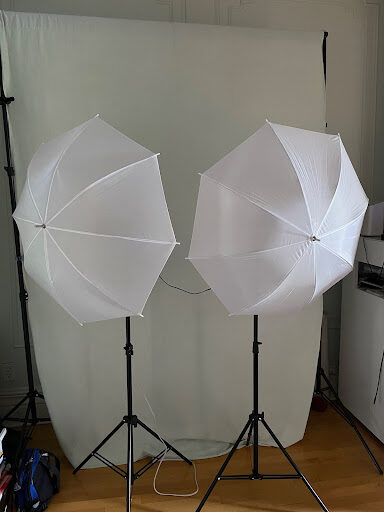New technologies are not only taking work away from actors and other performers, but it is also making it more expensive overall for them to stay in the entertainment business.

On July 14, the Screen Actors Guild and American Federation of Television and Radio Artists (SAG-AFTRA) began strike action joining the Writers Guild of America (WGA) who have been on the picket lines since May.
Meanwhile, in Canada actors with the Alliance of Canadian Cinema, Television and Radio Artists (ACTRA) have been locked out of advertising productions for 15 months. These mass work stoppages reveal how changing technology in the media landscape is being used against workers’ interests.
“The whole business model has changed, you know, with streaming digital and all of that,” said Eleanor Noble, president of ACTRA, which represents more than 28,000 performers. “So we know that lots of money is being made and producers, agencies are making big money and they are not compensating us.”
Noble quickly pointed out the concern around the unregulated use of artificial intelligence.
“For performers, our product is our voice, our face, our image and our being,” Noble said. “For writers, it’s the writing skills. If we do not have any control over our product, if we are not consenting to its use and if we are not being compensated for being copied in some way or other that is just immoral and unethical.”
Noble said that artificial intelligence is also concerning because it highlights producers’ unwillingness to engage with actors and writers. This attitude could affect ongoing negotiations as workers bargain with Hollywood producers in America and with advertising companies in Canada.
READ MORE: An ACTRA agreement could set high standard for gig workers
“We have a partnership with producers and if they’re not interested in working with us, that’s really going to change the face of what film and television and commercials are going to be for the rest of time,” Noble explained. “So guardrails need to be put in. We need to be able to protect our product.”
Another technological change that is putting pressure on performers is remote work. While actors still go to set once they are cast in a production, auditions are another story.
During lockdowns in response to the COVID-19 pandemic, actors would do auditions by shooting short recordings of themselves reading lines and sending them in to be considered for a role. The requirements for these “self-tapes” increasingly put financial strain on workers.
Self-tapes are required to meet certain stipulations around sound and video quality. Pressure increased with expectations around video-editing, the background behind actors and hiring professional readers to run lines with actors during their audition.

“A lot of people were like, ‘Oh my god, it cost me a fortune. When am I ever going to be compensated for creating a studio,’” Noble explained. “I have a permanent space in my home that has a backdrop and umbrella lights and the whole deal. There used to be a little bookshelf there and now that’s gone. I sort of lost a section of my home and this has happened to actors all around the world.”
With COVID-19 lockdowns and social distancing measures long in the rearview mirror, Noble says that many producers have chosen to continue this practice. Strict stipulations on self-tapes with no compensation for those who audition is a tangible manifestation of corporate greed. As these practices continue, studios are able to cut costs and offload expenses onto workers.
As work stoppages spread across borders, Noble reiterated that the struggle of all creatives is deeply connected. The WGA strike had already slowed auditions and productions for some Canadian actors and the SAG-AFTRA strike is expected to slow work down even more.
Despite the sacrifices that will be made during these strike actions, Noble said that ACTRA stands firmly in solidarity with picketing workers in the U.S. just as these workers continue to stand in solidarity with ACTRA while they remain locked out of advertising productions.
Thanks for reading this article! Before you go…
Did you know that rabble.ca has been sharing labour-focused, people-centered news since 2001? We are Canada’s oldest online progressive news outlet and we wear that title with pride.
For over 20 years, we’ve led the way in indie news coverage in Canada. We take pride in championing activists from communities across the country, keeping the finger on the pulse of labour news as it happens, and sharing an alternative take on the political news of the day. Always through a progressive lens and never behind a paywall.

Today, we’d like you to support us during our summer fundraising campaign.
By becoming a monthly supporter or making a one-time donation, you’ll help secure rabble.ca’s place in Canadian media for years to come.
Gabriela “Gabby” Calugay-Casuga (she/they) is a writer and activist based in so-called “Ottawa.” They began writing for Migrante Ottawa’s radio show, Talakayang Bayan, in 2017. Since then, she…
More by Gabriela Calugay-Casuga


